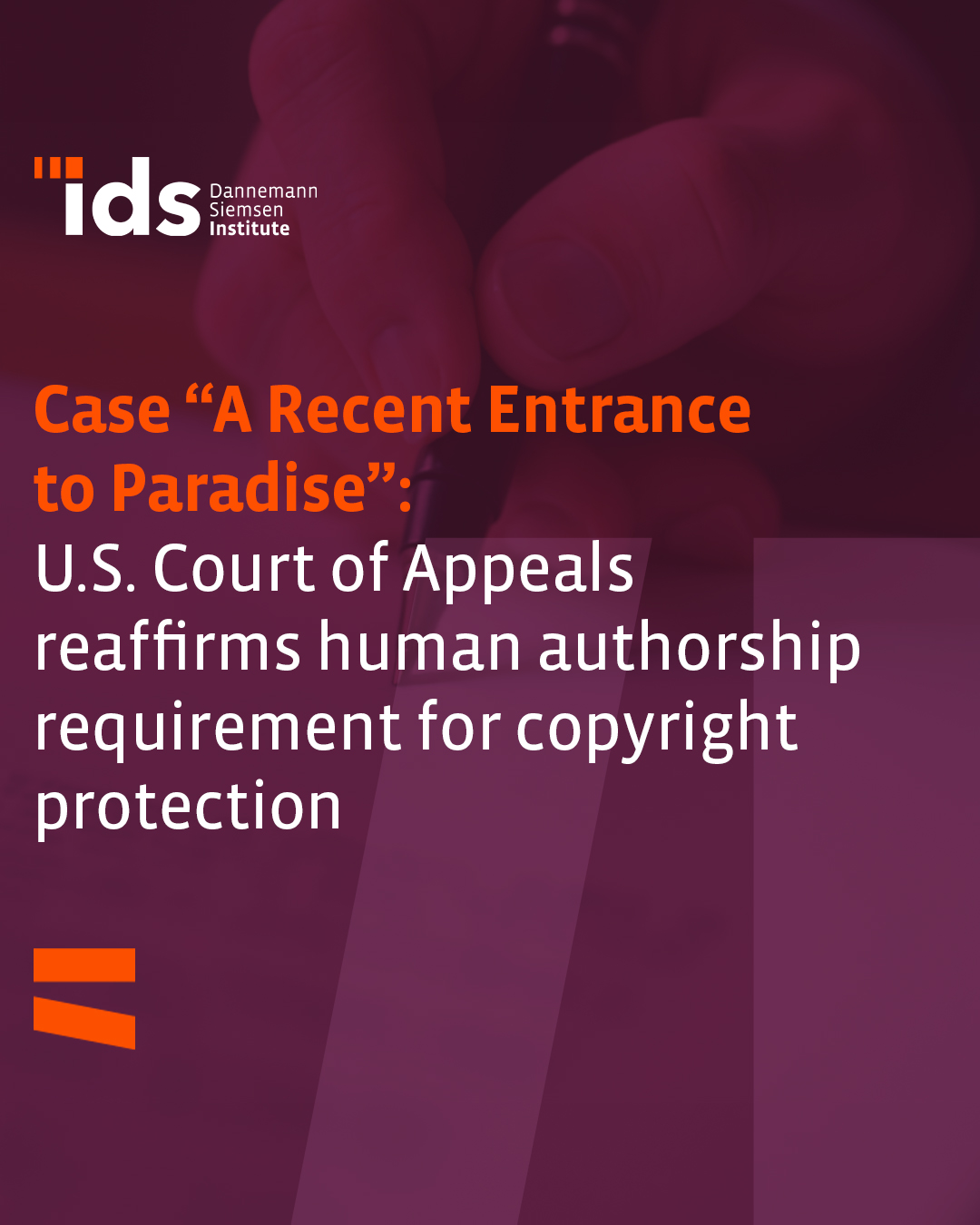01 de abril de 2025
Share
Case “A Recent Entrance to Paradise”: U.S. Court of Appeals reaffirms human authorship requirement for copyright protection
Recently, the United States Court of Appeals for the District of Columbia Circuit upheld the decision of the United States Copyright Office (USCO), which denied copyright registration to a work created autonomously by an artificial intelligence (AI) system. The court reiterated the USCO’s view that, under US law, only human beings can be recognized as authors, and that only works created by human beings can enjoy copyright protection. The decision was handed down in the case of Stephen Thaler v. Shira Perlmutter and the USCO, and began when Stephen Thaler, a computer scientist, submitted a copyright application for a work of visual art entitled “A Recent Entrance to Paradise”. Thaler claimed that the work was created autonomously by an artificial intelligence system called “Creativity Machine”, indicating the system as the author and himself as the owner of the work.
Initially, the USCO denied the application, arguing that the work lacked human authorship, an essential requirement for copyright protection. Thaler then appealed to the USCO’s Review Board, arguing that “the human authorship requirement is unconstitutional and not supported by American law or case law”. In addition, Thaler argued that the “work made for hire” doctrine would allow him to be considered the owner of the work, since it was custom-generated for the machine he owns.
The Review Board upheld the refusal of registration because “(…) the work was created autonomously by artificial intelligence without any creative input from a human actor”. The review board also rejected the argument that the work wasmade for hire, based on the fact that there was no contract between Dr. Thaler and Creativity Machine.
Thaler then took the case to the United States District Court for the District of Columbia. The District Court upheld the Copyright Office’s decision to deny registration. Based on case law and the text of the US Copyright Act, the court concluded that “human authorship is a fundamental requirement for copyright”. The court also held that Thaler could not rely on the “work made for hire” clause, as this provision would only apply if there was a right to be asserted”, which was not the case, as the work ‘was never eligible for copyright protection’, and there was therefore no right to be transferred, even if he were considered the employer of the Creativity Machine.
At the U.S. Court of Appeals for the District of Columbia Circuit, Thaler reiterated his previous arguments and added that the narrow interpretation of the term “author” would prevent the protection of works generated by AI and with the assistance of these systems. He also argued that the District Court’s decision could “discourage the creativity of AI creators and operators.”
The Court of Appeals argued that works created with the assistance of AI systems can be protected by copyright, as long as a human being (the one who created, operated or used the AI) is identified as the author. The Copyright Office already accepts registrations of this kind. In addition, the court pointed out that Thaler did not demonstrate how preventing machines from being authors would reduce the production of original works, since machines do not respond to economic incentives. Finally, the court highlighted that the requirement of human authorship still encourages creators like Thaler to develop works with AI.
Finally, the Court of Appeals, in a unanimous decision, upheld the District Court’s ruling. It held that the US Copyright Act requires all works eligible for protection to be created, in the first instance, by a human being. The court analyzed several provisions of the law that make sense only if the author is a human being, such as those related to the duration of the copyright based on the author’s life, inheritance and nationality. The court also clarified that its decision does not prevent the protection of works created with the aid of AI, as long as there is significant human involvement in the creation process.
The document can be accessed via the link: Stephen Thaler v. Shira Perlmutter
Note: For quick release, this English version is provided by automated translation without human review.
